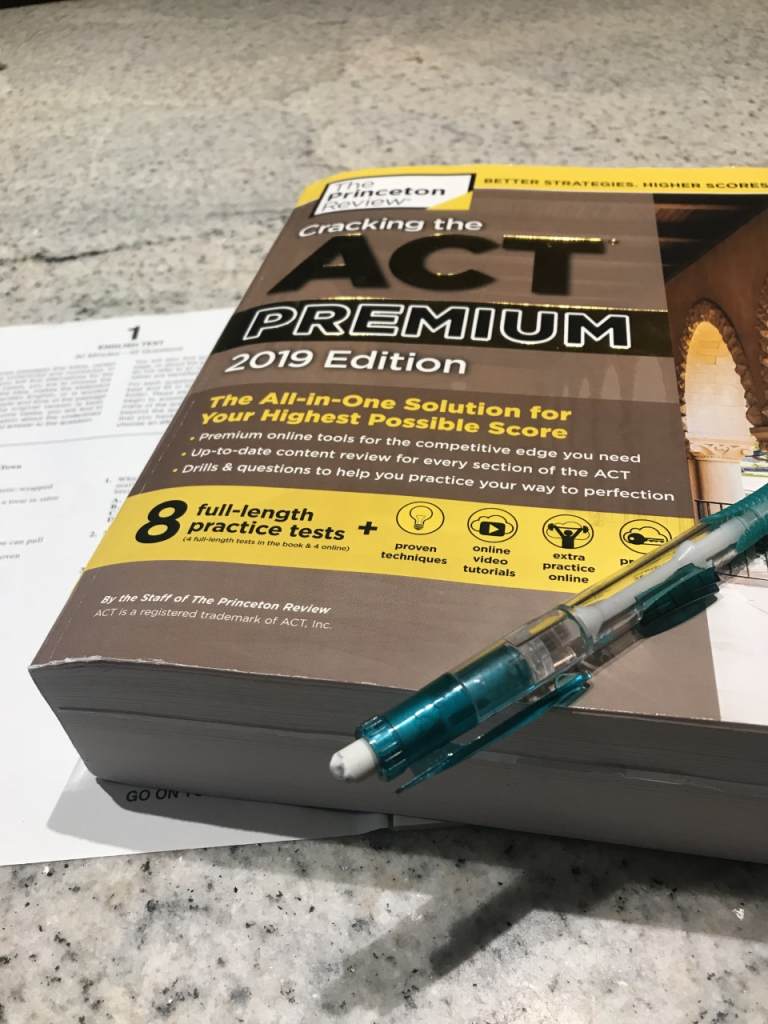Slider Image by Annie Fingersh.
Starting in September of 2020, the ACT will begin employing some major changes to their testing and scoring process. These changes include the ability for students to go back and retake one of the sections of the test rather than the whole exam. While this may seem like a huge relief to most test takers, this switch leads to some questions: How is this going to affect the college admissions process? And is this change going to put disadvantaged students another step behind?
The ACT is comprised of four sections: English, math, science, and reading, plus an optional writing section. Each section is scored on a scale from one to 36, and these four scores are averaged to receive a composite score. Even if a student takes the test more than once, when applying to colleges, they simply see the one test score the student wishes to send to them. Some colleges superscore, which takes your highest individual score in each section from multiple tests and averages those for the highest possible score.

Although the weight of standardized tests in a college application varies from college to college, a majority of graduating students take either the SAT or the ACT. A lot of preparation goes into both of these tests, including preparatory courses, practice tests, and countless hours of studying. However, even with all the preparation many students end up taking the test more than once in order to achieve a higher score. As the ACT evolves, redoing just one section allows the taker to zero in on raising the score of one section without putting their other section scores at risk. Sara Saidel, a senior at HBHA who recently took the ACT, thinks that this change would have been extremely beneficial to her. She could have “taken an individual section at least two more times to get the score [she] wanted.” Starting in the fall of next year, this change seems like it could be a popular one among most students.
However, this change could add even more competition to students already vying for spots at certain schools. By allowing a single-section retake, students with the financial means to do so can continue to practice and redo parts of the test without sitting for a whole three hour test. But the playing field is already uneven. With wealthier families able to afford tutors and prep courses, this new addition will give them yet another leg-up.
Each test costs about $68 (including the writing section), and some spend thousands of dollars in preparation. Obviously, for lower income families this preparation can be out of the question. Claire Reagan, an AP English teacher at HBHA as well as an ACT tutor, agrees that tutoring can be unrealistic for disadvantaged students, but that they are “often [the ones] who would benefit most from the help.”

Although ACT has not released how much each section retake will cost, “any additional cost required to raise one’s score gives those with financial resources an advantage over those who do not have the same resources,” Reagan adds.
Even though it might seem like redoing just one section will be advantageous, this change will likely turn standardized tests into an even bigger deal. Students can carry on retaking sections as many times as they want in the hopes of scoring a 36. But this switch continues to widen the gap between lower and higher income families, adding to the competitiveness and stress of college applications.
Although Saidel recognizes it would be beneficial to her, she also acknowledges that this change gives “those who are wealthier an extreme unfair advantage.” As Adam Ingersell, the co-founder of a test prep firm, said in an interview with USA Today, these changes “privilege the privileged.”















































































